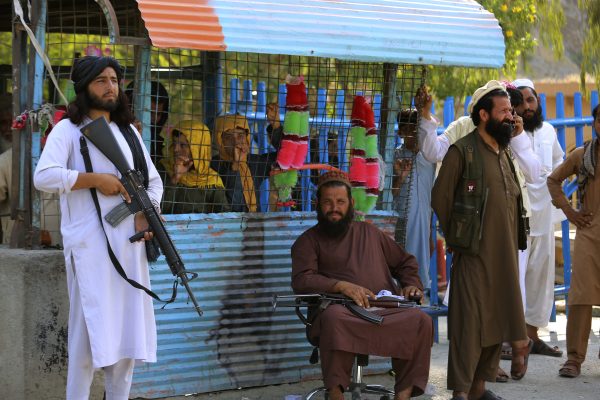
Pakistan is seeking assurances from the Taliban that Afghanistan’s soil will not be used to export terrorism across the Durand Line and to the rest of the world. The Taliban say Pakistan’s concerns are “justified” and they are trying to reassure Pakistan that Afghanistan will not be used as a global hub for terrorism. Despite these assurances, terrorism and extremism are rearing their ugly heads in Pakistan, with targeted killings and suicide bombings on the rise. The wave of fear and terror that was experienced by the people of Afghanistan when the Taliban seized Kabul on August 15 is now beginning to spillover across the Durand Line into Pakistan, and its first effects are being felt particularly in the bordering areas of of North and South Waziristan.
In South Waziristan alone, as many as 15 targeted attacks, including a suicide attack, have been reported since the Taliban took over in Afghanistan. In North Waziristan, eight targeted attacks were reported in the same period; five in Bajaur and one each in Khyber and Bannu. These attacks resulted in a number of civilian and military casualties. On August 27, Noor Islam Dawar, president of Youth of Waziristan, was murdered in Mir Ali, North Waziristan. He has now become the first active political worker with a profile to match to be killed in a targeted attack since Operation Zarb-e-Azb, the 2014 government military offensive against militant outfits.
Business and trade in Waziristan, which relies heavily on bilateral ties with Afghanistan, has been severely impacted by the recent chaos; no one wants to invest with such risks involved. It is also being reported that militants have resumed the practice of extortion. Those who do not or cannot meet the demands of extortionists are killed.
In Quetta, Balochistan, at least three Pakistani paramilitary soldiers were killed and 20 wounded in a suicide attack recently. The Tehreek-i-Taliban (TTP), which was supposed to have been wiped out in Operation Zarb-e-Azb a few years ago, claimed this attack.
In his first speech after his release from prison in Afghanistan following the Taliban takeover, TTP deputy chief Faqir Muhammad said it would be possible to implement Shariah in Pakistan now that it is being enforced in Afghanistan. He also reaffirmed his commitment to the jihadi project in Pakistan.
With the Taliban being given an entire state in the form of Afghanistan, the TTP has regained ideological strength and confidence. Today, under the banner of the Islamic Emirate, the TTP believes and propagates that it was part of the historic struggle that resulted in the defeat of global powers in Afghanistan. To them, Pakistan now probably seems like an easier target. On their part, the Afghan Taliban have never disowned or confronted the TTP and vice versa; in fact, the TTP has grown under the umbrella of the Afghan Taliban. In Miranshah, the Haqqani madrassa proudly raised the flag of the Islamic Emirate and the movements of local militants have become much more public. Religious parties who support the Taliban have been celebrating — not just because of the claim that the Taliban have defeated global powers in Afghanistan, but also because they have suddenly regained relevance among their jihadi friends.
Policymakers in Islamabad and Rawalpindi should be seriously concerned about these developments, especially because the global political landscape has changed. The War on Terror is no longer a priority for the United States and its allies, and as a result there are likely to be no more Coalition Support Funds running to the billions of dollars to combat terrorism in Pakistan. It is feared that with an economy that is already dwindling (more so in recent years), Pakistan is no longer as equipped to crush the rising menace of militancy in the country.
The Taliban’s takeover of Afghanistan and its implications on foreign and security policies have been discussed in many parliaments around the world, including in the U.K., Australia, as well as in the United Nations and by the Organization of Islamic Countries (OIC), but it is yet to be discussed in the parliament of Pakistan, which as history has it, will be the first country to face the consequences of the Talibanization of the region.
As an elected representative of North Waziristan, I have made calls for a joint session of the parliament to discuss the situation in Afghanistan, the Taliban’s takeover and our state’s patronage and support for the Taliban openly. These calls have been ignored as the security establishment and its agencies continue to not only provide the same support to the Taliban that they have always been accused of, but are actively organizing and orchestrating lobbying efforts around the world to get the Taliban’s government recognized.
Many in the corridors of power and the mainstream in Pakistan have been celebrating the fall of an elected government in Afghanistan and that country’s descent into chaos as it was handed over to Taliban, something that Pakistan’s state has been working for decades on. The gleeful statements of support for the Taliban by Pakistani officials are beyond shameful as they continue to slaughter Afghans. Afghans continue to leave their country, while those who have remained have begun to come out on the streets to protest against the Taliban.
Pakistan has played an active role in creating, facilitating and supporting the Taliban over the decades, a fact that the state has stopped denying. But it has done so at the very heavy cost of the lives of thousands of Pakistanis and hundreds of thousands of Afghans. Pakistan continues to play with fire, and we fear that it will eventually be consumed by the flames.

0 Comments